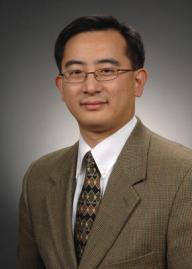Eric Lin

Dr. Eric Lin is Director of the Material Measurement Laboratory (MML) at the National Institute of Standards and Technology (NIST). MML has more than 900 staff members and visiting scientists, and serves as the nation's reference laboratory for measurements in the chemical, biological and materials sciences. MML activities include fundamental research in the composition, structure and properties of industrial, biological, and environmental materials and processes, to the development and dissemination of certified reference materials, critically evaluated data and other measurement quality assurance programs. MML serves a broad range of industry sectors ranging from transportation to biotechnology, and provides research, measurement services and quality assurance tools for addressing problems of national importance ranging from developing tools to shorten the time-to-discovery of new materials, to the investigation of new sources of renewable energy, to improved diagnostics and therapies for health care.
Lin joined NIST as an NRC-NIST postdoctoral associate in 1996, and joined the permanent staff in 1998. In 2002, he became the Leader of the Electronics Group, where he established world class research programs in semiconductor electronics processing, nanoscale materials, and organic electronics. In 2012, he became Chief of the Materials Science and Engineering Division, formed by the merger of the Polymers and the Metallurgy Divisions. Lin’s work has supported important technology areas including advanced manufacturing and advanced electronics, as well as the multi-agency Materials Genome Initiative. He has been active in several cross-NIST programs, serving on the NIST Incentive Awards Panel, the NIST-on-a-Chip Committee, and the NIST Strategic Computing Initiative Committee.
His contributions have been recognized with the Presidential Early Career Award for Scientists and Engineers (PECASE), the Department of Commerce Silver Medal, and the William P. Slichter Award. He is active in professional organizations including the American Institute of Chemical Engineers, the American Physical Society, the American Chemical Society, and the Materials Research Society. He received a B.S.E. from Princeton University in 1991 (summa cum laude) and Masters and Ph.D. degrees from Stanford in 1992 and 1996, respectively, all in chemical engineering.


